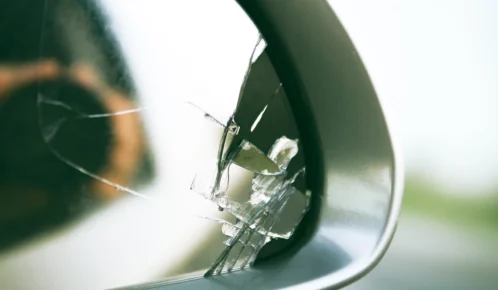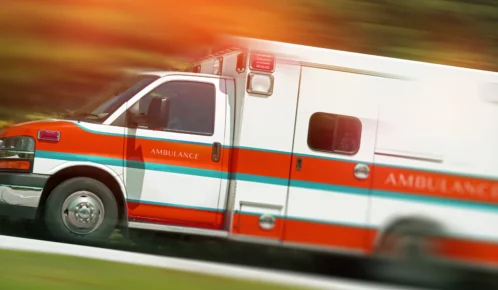Can I Get a Second Opinion if I Suspect Medical Malpractice? When medical malpractice is suspected as the cause of an injury or illness, victims should seek a second opinion and legal advice through an experienced attorney. According to Illinois law, medical professionals must follow the accepted standard of care within the medical field to prevent patients from suffering serious injuries, permanent disabilities, and even death.
Table of Contents

Were you injured by medical malpractice in Illinois? Call Ankin Law in Chicago for a free case review at 312-600-0000.
What Is Medical Malpractice?
Medical malpractice is when a health care professional causes injury or death to a patient by deviating from the standard medical practices and procedures. Within the medical profession, this standard of care is based and judged on the actions of other reasonably competent medical professionals with the same level of training. In medical malpractice cases, the law decides if a medical professional’s actions were reasonable by looking at what a similarly-trained professional would have done under the same circumstances.
In Illinois medical malpractice cases, an experienced medical malpractice lawyer looks at four factors to establish whether the professional duty of care was breached:
- The duty of care the medical professional owed to the patient
- The likelihood of harm to the patient
- The gravity of the harm to the patient
- Whether a similarly trained medical professional would have acted the same
Who Can Be Held Liable for Medical Malpractice?
Who can be held liable for medical malpractice in Illinois? Medical institutions and medical providers are expected to provide proper medical care to patients. When substandard care results in injury or illness or other types of patient harm, the institutions and medical professionals who play a part can be held liable for damages.
Hospitals and Medical Facilities
Under the legal doctrine of vicarious liability, hospitals are responsible for the actions of their employees, including doctors and surgeons, nurses, and lab technicians, when they are acting within the scope of their normal duties. Additionally, hospitals, outpatient clinics, and urgent care facilities have a responsibility to operate safe, clean facilities to protect patients from injury and illness. If negligent medical actions expose patients to injury or illness, diseases, harmful pathogens, or known behavioral problems of staff members such as alcohol or substance abuse, patients are entitled to file a medical malpractice lawsuit against the guilty party or parties.
Doctors and Surgeons
Doctors and surgeons who fail to provide the standard of care expected of them can be sued for medical malpractice. Lawsuits against doctors and surgeons often involve injuries referred to as “never events” that cause trauma, injury, illness, or death to patients. Never events usually involve egregious medical errors like operating on the wrong patient or the wrong body part. They are referred to as “never events” because they should never happen.
Nurses and Other Healthcare Professionals
Nurses and other healthcare providers like nurses aids and lab technicians can also be held liable in a medical malpractice lawsuit. When negligent actions result in a medical mistake and harm to a patient, both medical employees and independent contract workers can be held legally accountable for injuries.
Can I Get a Second Opinion if I Suspect Medical Malpractice?
If you suspect that medical malpractice caused your injury or illness, you have the right to request a second opinion. An experienced lawyer can discuss your case, answer questions such as “What are common examples of medical malpractice?” and provide legal advice on pursuing a medical malpractice lawsuit.
If you suspect medical malpractice, get a second opinion as soon as possible. Although you may not recognize or suspect malpractice right away, you can watch for signs or indicators that suggest you are a victim of medical malpractice:
- You were diagnosed with a severe disease after basic, minimal testing
- You got a second opinion that differs from your doctor’s diagnosis
- Your medical treatment is not working as predicted by your doctor
- Your doctor dismisses your health concerns about your condition
- Your doctor did not explain the complications or risks of your medical condition or treatment
What Are Common Types of Surgical Errors?
According to the World Health Organization, unsafe healthcare practices are responsible for more than 3 million patient deaths each year. In the United States, healthcare studies show that surgical errors occur at a high rate. Reports show that up to 20% of patient injuries occur in hospitals during surgical procedures, and most adverse events occur in pre-surgery and post-surgery patients. Collective U.S. health data shows that medical errors are the third-leading cause of patient deaths. The most common types of surgical errors include:
- Anesthesia errors
- Leaving foreign objects inside patients
- Operating on the wrong patient
- Operating on the wrong injury site
- Neglect of post-operative treatment
- Failure to follow up with patients after surgery
Steps to Take When Seeking a Second Opinion
If you suffered complications that you suspect are a result of medical malpractice, and you need a second opinion, there are steps you should take:
Seek Medical Attention
If your medical condition worsens following surgery or treatment, seek medical attention right away. Complications can develop quickly and expose you to greater risks of infections, internal bleeding, and the need for future surgery. When problems arise, you should contact your doctor to schedule an emergency visit or contact another doctor to get a second medical opinion about your condition. Obtaining a second medical opinion often helps to prevent further complications and illuminate the cause or source of your initial injury.
Gather and Preserve Documentation
As soon as you suspect you are the victim of medical malpractice, collect and preserve your medical records and healthcare documents from your healthcare providers. These records will show your medical history, detailed medical symptoms, diagnostic and treatment records, imaging tests, and prescribed medications. Medical facilities and medical practitioners are required to keep patient medical records, which are vital in determining a medical malpractice case.
When medical malpractice results in a patient’s death or the death of a family member, medical records can establish the cause of death. In some cases, it is possible to request an autopsy to gain further understanding and documentation of what healthcare action or inaction caused the death of the patient. If an autopsy is not available through the Illinois Medical Examiner’s Office, private autopsy options are usually available.
File an Affidavit of Merit
In a medical malpractice lawsuit, the question, “Do I need a medical malpractice expert witness?” is often asked. In Illinois, the Code of Civil Procedure requires that the injured party in a medical malpractice case file an affidavit of merit stating that he or she consulted with a qualifying medical expert. This affidavit must include a written report by the medical expert detailing the expert’s opinion that there is reasonable cause to file the action. If the case includes more than one responsible party, a separate report must be included for each defendant. The report does not need to identify the expert witness or include his or her signature for validation.
Contact a Medical Malpractice Lawyer
Medical malpractice cases are often difficult to prove without an experienced medical malpractice lawyer. The burden of proof lies with the person who files the lawsuit. To win the case, the plaintiff must prove that the hospital, doctor, nurse, surgeon, or other medical professional breached the duty of care and caused harm to the patient.
In Illinois, it’s estimated that about 50% of medical malpractice cases proceed to a court trial, and the other 50% are settled in an out-of-court settlement agreement between lawyers. Either way, working with a medical malpractice lawyer is a wise decision.If your injury or illness was caused by medical malpractice in Illinois, contact us for a free case review. Our Chicago Lawyers can help you win your medical malpractice case and get the compensation you need for your injuries.



